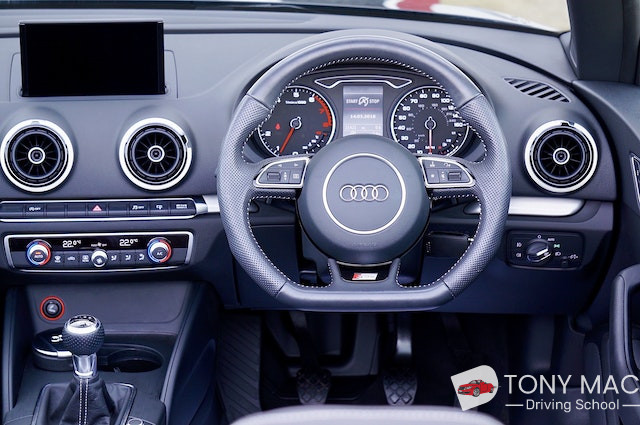What Freud Can Teach Us About Beginner Driver

The Ultimate Guide for Beginner Drivers: Tips, Challenges, and Best Practices
Ending up being a proficient driver is an essential skill that comes with significant responsibilities. For beginner motorists, the journey from acquiring their driver's license to ending up being an experienced road user can be both exciting and daunting. This thorough guide will check out essential pointers, typical challenges, and best practices for newbie chauffeurs.
Comprehending the Importance of Driving
Driving plays a crucial role in life. It provides self-reliance and the capability to travel longer ranges effectively. Nevertheless, it also requires attention, duty, and a thorough understanding of traffic laws and car operation. For beginner chauffeurs, mastering these components can result in a safer and more enjoyable driving experience.
Tabulation
- Getting ready for the Road
- Vital Skills Every Beginner Driver Should Know
- Common Challenges Faced by Beginner Drivers
- Tips for Safe Driving
- Regularly Asked Questions (FAQs)
1. Getting ready for the Road
Preparation is essential for any beginner driver. This includes understanding both theoretical and practical elements of driving.
1.1 Getting Your Driver's License
Before striking the road, people need to get a driver's license. The procedure generally includes:
- Completing a driver's education course
- Passing a written understanding test
- Finishing a specified variety of hours of supervised driving
- Passing a road test
1.2 Familiarizing Yourself with the Vehicle
Understanding the vehicle you will be driving is essential. New motorists ought to become familiarized with:
- The control panel design
- Basic controls (steering, pedals, indicators)
- Safety features (seatbelts, airbags)
- The location of essential products like the extra tire and emergency situation kit
2. Essential Skills Every Beginner Driver Should Know
As chauffeurs, specific skills must be mastered to guarantee safety and confidence on the road. Beginner chauffeurs ought to concentrate on:
2.1 Basic Driving Techniques
- Beginning and Stopping: Learning the correct way to start the lorry and pertain to a total stop.
- Steering Control: Understanding how to guide smoothly and make accurate turns.
- Parking Skills: Gaining confidence in parallel parking, angle parking, and parking in numerous circumstances.
2.2 Defensive Driving
- Awareness of Surroundings: Constantly scanning the environment for prospective risks.
- Maintaining Distance: Keeping safe ranges from other automobiles to enable stopping time.
- Forecasting Others' Actions: Anticipating the behavior of other motorists and pedestrians.
2.3 Navigational Skills
- Checking Out Maps and GPS: Being able to navigate using traditional maps and contemporary technology.
- Comprehending Traffic Signs: Familiarity with road signs, signals, and markings to make sure compliance with traffic laws.
| Ability | Description |
|---|---|
| Fundamental Driving Techniques | Starting, stopping, guiding, and parking |
| Defensive Driving | Awareness, preserving range, anticipating actions |
| Navigational Skills | Using maps and GPS, comprehending traffic signs |
3. Typical Challenges Faced by Beginner Drivers
Even with preparation and practice, beginner motorists frequently face several obstacles that can impede their knowing procedure.
3.1 Overcoming Fear and Anxiety
Beginning to drive can be overwhelming. Numerous brand-new chauffeurs experience stress and anxiety or worry, particularly in high-traffic scenarios.
3.2 Learning Road Rules
With many rules to keep in mind, it can be tough for newbies to keep an eye on whatever, specifically when under pressure.
3.3 Navigating Diverse Driving Conditions
As newbies gain experience, they will need to learn how to deal with various weather condition conditions (rain, snow, fog) and road types.
4. Tips for Safe Driving
For rookie drivers, embracing safe driving habits is essential. Here are some best practices:
Avoid Distractions:
- Do not use your phone or other devices while driving.
- Limit in-car conversations that might take your focus far from the road.
Comply With Speed Limits:
- Always obey published speed limitations.
- Change speed according to road and weather.
Use Turn Signals:
- Always indicate your objective to turn or change lanes.
- This informs other chauffeurs and promotes more secure driving conditions.
Stay Calm and Patient:
- Keep your feelings in check to prevent aggressive driving.
- If you make an error, stay calm and learn from it.
4.1 Important Safety Features to Utilize
- Anti-lock Braking Systems (ABS)
- Traction Control
- Crumple Zones and Airbags
5. Frequently Asked Questions (FAQs)
Q1: How long does it take to become a skilled driver? Learner Driver Insurance : The timeline differs, but with constant practice and experience, many learners end up being adequately competent within 6 to 12 months. Q2: What should I do if I am associated with an accident?A2:
Always ensure safety first, call emergency situation services if required, document the scene, and exchange details with the other party. Alert your insurance provider quickly. Q3: Can I take driving lessons if I have my learner's permit?A3: Yes, it is highly suggested to take structured driving lessons with a qualified instructor while holding a learner's license. Q4: What are the benefits of defensive driving courses?A4: Defensive driving courses enhance safety awareness, decline accident risk, and may use discounts
on insurance premiums. Q5: What need to I do if I feel nervous while driving?A5: Practice driving in low-stress environments, consider taking driving lessons, and speak to somebody who can provide support or
recommendations on how to manage anxiety. Driving is an important skill
that boosts personal mobility and independence. For beginner drivers, getting knowledge, sharpening necessary skills, and getting rid of challenges are vital steps
in their journey towards becoming positive and safe chauffeurs. By following this guide and embracing a positive knowing attitude, newbie drivers can pave the method for a successful driving future.

